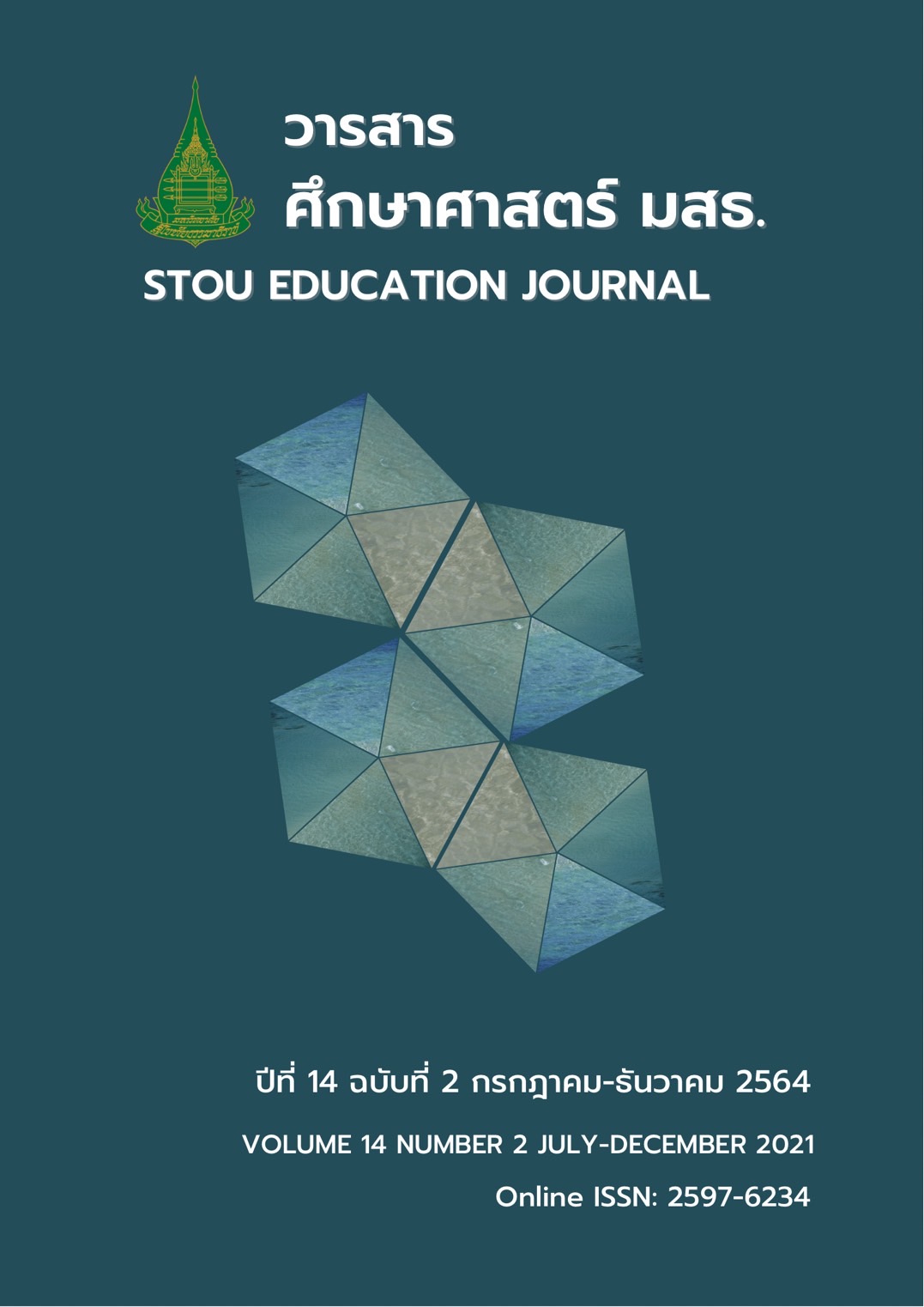Guidelines for School Development Toward a Learning Organization for Educational Management in the 21st Century of Schools under the Secondary Education Service Area Office 7
Main Article Content
Abstract
The objectives of the research were to (1) investigate the state of being learning organization for educational management in the 21st Century of schools; (2) compare the levels of being learning organization as classified by school size; and (3) propose guidelines for school development toward a learning organization. The research process comprised two phases. The first phase was the investigation of the state of being learning organization for educational management in the 21st Century. The sample consisted of 329 school administrators and teachers from schools under the Secondary Education Service Area Office 7. The employed instrument was a questionnaire on the state of being learning organization, with reliability coefficient of .99 and the open-ended questions. Data were analyzed using the frequency, percentage, mean, standard deviation, one-way ANOVA, and content analysis. The second phase was the proposal of guidelines for the development of schools toward being a learning organization for educational management. The key informants were 13 experts. Data were analyzed with the checking of opinions and content analysis. The research findings showed that (1) the overall and all five specific aspects of the state of being learning organization were rated at the high level; (2) the comparison results of the levels of being learning organization as classified by school size indicated no significant difference in either the overall or specific aspects of being learning organization and (3) the guidelines for school development toward a learning organization for educational management were the following: the school personnel should be trained to have systematic thinking skills; there should be the promotion for working in teams; there should be the exchange of learning via technological networks; the schools should have clear policies on promotion of learning for their personnel; and there should be the shared determination of vision, mission, and strategic plans.
Article Details
References
เข็มทอง ศิริแสงเลิศ. (2561). หน่วยที่ 2 การพัฒนาองค์การแห่งการเรียนรู้ในศตวรรษที่ 21. ใน ประมวลสาระ
ชุดวิชานวัตกรรมการบริหารการศึกษาและภาวะผู้นำ หน่วยที่ 1-5 . (น. 1-64). นนทบุรี: สาขาวิชาศึกษาศาสตร์มหาวิทยาลัยสุโขทัยธรรมาธิราช.
จตุพันธ์ รุจิรานุกูล. (2554). การนำโรงเรียนไปสู่องค์การแห่งการเรียนรู้ตามทัศนะของครูผู้สอน
สังกัดสำนักงานเขตพื้นที่การศึกษาชลบุรี เขต 2. (วิทยานิพนธ์ปริญญามหาบัณฑิต ไม่ได้ตีพิมพ์).
มหาวิทยาลัยบูรพา, ชลบุรี.
ธีรวุฒิ เอกะกุล. (2543). ระเบียบวิธีวิจัยทางพฤติกรรมศาสตร์และสังคมศาสตร์. อุบลราชธานี:
สถาบันราชภัฏอุบลราชธานี.
นฤมล บุญพิมพ์. (2553). ความสัมพันธ์ระหว่างความเป็นองค์การแห่งการเรียนรู้ในโรงเรียนกับประสิทธิผล
การบริหารงานในโรงเรียน สังกัดเขตพื้นที่การศึกษากาญจนบุรี. (วิทยานิพนธ์ปริญญามหาบัณฑิต
ไม่ได้ตีพิมพ์). มหาวิทยาลัยราชภัฏกาญจนบุรี, กาญจนบุรี.
ศักดา มัชปาโต. (2550). ความเป็นองค์การแห่งการเรียนรู้ของโรงเรียน สังกัดสำนักงานเขตพื้นที่การศึกษาขอนแก่นเขต 5. (วิทยานิพนธ์ปริญญามหาบัณฑิต ไม่ได้ตีพิมพ์). มหาวิทยาลัยราชภัฏเลย, เลย.
ศักดิ์สิน ช่องดารากุล. (2550). สังคมโลกเปลี่ยนไป สังคมการศึกษาไทยเปลี่ยนไปบ้างแล้วหรือยัง. วารสารวิชาการ
สำนักงานคณะกรรมการการศึกษาขั้นพื้นฐาน, 10(1), 9-14.
สำนักงานเขตพื้นที่การศึกษามัธยมศึกษา เขต 7. (2561). สถิติข้อมูลทางการศึกษา. ปราจีนบุรี: สำนักงานเขตพื้นที่
การศึกษามัธยมศึกษา เขต 7.
สำนักงานคณะกรรมการการศึกษาขั้นพื้นฐาน. (2556). นโยบายสำนักงานคณะกรรมการการศึกษาขั้นพื้นฐาน
ปีงบประมาณ พ.ศ. 2557. กรุงเทพฯ : สำนักงานคณะกรรมการการศึกษาขั้นพื้นฐาน.
Marquardt, M. J. (2002). Building the learning organization: Mastering the 5 elements for corporate learning
(2nd ed.). Palo Alto, CA: Davies-Black Publishing.
Marquardt, M. J. & Reynolds, A. (1994). The global learning organization. New York: IRWIN.


